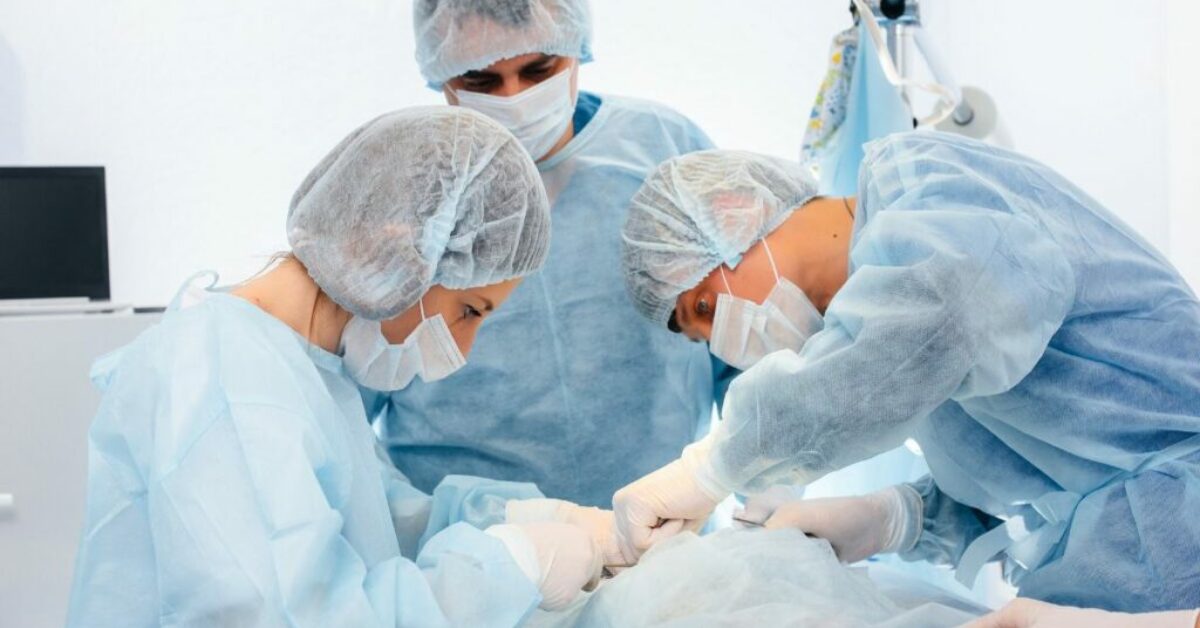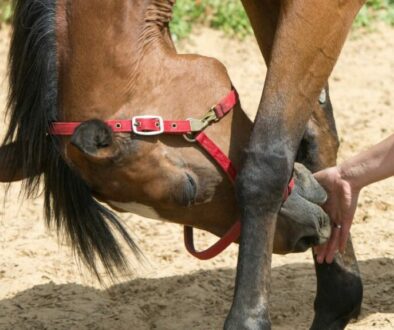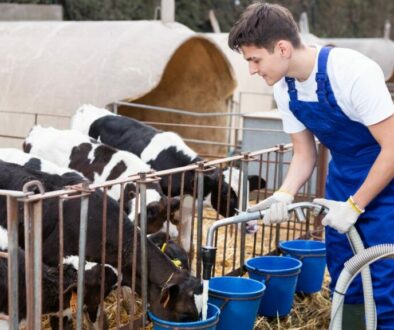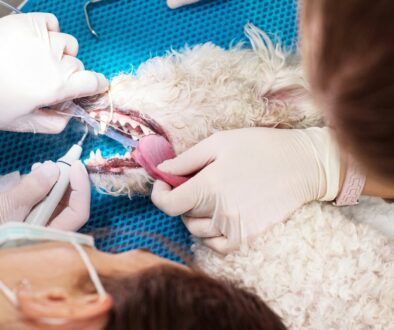How To Become A Veterinary Surgeon?
If you love animals and have a passion for science, then becoming a veterinary surgeon could be the perfect career for you. Veterinary surgeons are responsible for treating and operating on sick or injured animals, both large and small. In this article, we will take you through the steps on how to become a veterinary surgeon, the skills needed for the role, and the benefits of this rewarding career path.
Steps To Becoming A Veterinary Surgeon
Becoming a veterinary surgeon is a long and rewarding journey. It requires a great deal of education, hard work, and dedication. If you are passionate about helping animals and want to pursue a career as a veterinary surgeon, there are several steps you need to follow.
- Obtain a Bachelor’s Degree
The first step toward becoming a veterinary surgeon is obtaining a bachelor’s degree in a science-related field. This will provide you with a strong foundation in the sciences, which is essential for a career in veterinary medicine. The most common degrees include biology, animal science, or a similar field. During your undergraduate studies, it is important to maintain a high GPA and gain relevant experience through internships or volunteer work.
- Pursue a Doctor of Veterinary Medicine (DVM) Degree
After completing a bachelor’s degree, you will need to pursue a Doctor of Veterinary Medicine (DVM) degree. This is a four-year program that covers topics such as anatomy, physiology, pharmacology, and surgery. During the course, students are required to undertake a significant amount of hands-on experience in veterinary hospitals, clinics or zoos, to gain practical experience. The DVM program is designed to provide students with the knowledge and skills they need to diagnose and treat a wide range of animal health issues.
- Pass the North American Veterinary Licensing Examination (NAVLE)
After completing the DVM degree, graduates must pass the North American Veterinary Licensing Examination (NAVLE), enabling them to practice veterinary medicine in the United States and Canada. This exam is designed to test the knowledge and skills required to diagnose and treat a wide range of animal health issues.
- Gain Experience in the Field
Once you have obtained your DVM degree and passed the NAVLE, it is important to gain experience in the field. This can be done through internships, residencies, or working in a veterinary hospital or clinic. This experience will help you develop the skills and knowledge needed to become a successful veterinary surgeon. It is also important to stay up-to-date with the latest advances in veterinary medicine by attending conferences and continuing education courses.
Becoming a veterinary surgeon is a challenging but rewarding career. It requires a great deal of education, hard work, and dedication. By following these steps, you can achieve your goal of becoming a veterinary surgeon and make a positive impact on the lives of animals.
Skills Needed to Become a Veterinary Surgeon
Aside from the skills mentioned above, there are other essential qualities that aspiring veterinary surgeons should possess. For instance, having a strong sense of empathy and compassion towards animals is crucial. This means understanding their behavior, body language, and emotions, which can help in diagnosing and treating them effectively.
Furthermore, veterinary surgeons should have excellent manual dexterity, as they will be performing intricate surgical procedures on animals of different sizes and shapes. They should also have good hand-eye coordination, as well as the ability to work in a fast-paced and often stressful environment.
In addition to technical skills, veterinary surgeons should also possess excellent interpersonal skills. They should be able to communicate effectively with pet owners, explaining complex medical procedures and conditions in a way that is easy to understand. They should also be able to work collaboratively with other veterinary professionals, such as veterinary technicians and assistants, to ensure that the animal receives the best possible care.
Finally, veterinary surgeons should have a strong work ethic and be willing to work long hours, including evenings and weekends, as emergencies can happen at any time. They should also be committed to ongoing learning and professional development, attending conferences and workshops to stay up-to-date with the latest advancements in veterinary medicine.
Becoming a veterinary surgeon requires a unique combination of technical, interpersonal, and personal qualities. By possessing these skills, individuals can provide the best possible care for animals and make a positive impact on their lives.
What is A Veterinary Surgeon?
A veterinary surgeon is a trained and licensed professional responsible for diagnosing, treating, and operating on animals. In some cases, vets will specialize in a particular area, such as orthopedics or neurology, and focus on a specific group of animals such as household pets or livestock.
Being a veterinary surgeon is a highly rewarding career but can also be challenging. Vets are responsible for the health and wellbeing of animals, which can be a daunting task. They must be able to make quick decisions and work well under pressure, especially in emergency situations.
Aside from treating animals, veterinary surgeons also play an important role in educating pet owners and farmers on how to properly care for their animals. They may provide advice on nutrition, exercise, and preventative care, such as vaccinations and regular check-ups.
Working as a veterinary surgeon requires a strong academic background, as well as practical experience. Vets must complete a rigorous education program, which typically includes a bachelor’s degree in a related field, followed by a Doctor of Veterinary Medicine (DVM) degree. After completing their education, vets must pass a licensing exam to practice in their respective state.
It’s not uncommon for veterinary surgeons to work long hours, including nights and weekends, especially in emergency clinics or hospitals. They may also be required to travel to different locations, such as farms or zoos, to treat animals.
Despite the challenges, being a veterinary surgeon can be a highly fulfilling career for those who have a passion for animals and a desire to help improve their health and wellbeing. Whether working with household pets or exotic animals, veterinary surgeons play a vital role in keeping our furry and feathered friends healthy and happy.
The Benefits of Working as A Veterinary Surgeon
Aside from the satisfaction of saving animals’ lives and preventing pain and suffering, being a veterinary surgeon brings many benefits. Vets often have the opportunity to work with a variety of animals, and the joy of knowing they have made a difference in an animal’s life is an added bonus. This job can be challenging and can require long hours, but it is incredibly fulfilling.
As a veterinary surgeon, you will have the opportunity to work with animals of all shapes and sizes. From tiny hamsters to massive horses, each animal presents its own unique set of challenges and rewards. You will have the chance to learn about different species and their individual needs, and you will be able to use this knowledge to provide the best possible care.
One of the most rewarding aspects of being a veterinary surgeon is the opportunity to form close bonds with your patients and their owners. You will be there for your patients through every stage of their lives, from their first check-up as a puppy or kitten to their senior years. You will also be a source of comfort and support for their owners, who often view their pets as members of their family.
Another benefit of working as a veterinary surgeon is the opportunity to work in a variety of settings. You could choose to work in a small animal clinic, a large animal hospital, or even a zoo or wildlife sanctuary. Each setting presents its own unique challenges and rewards, and you will have the chance to explore different areas of veterinary medicine.
Of course, working as a veterinary surgeon is not without its challenges. The job can be emotionally taxing, particularly when dealing with sick or injured animals. You will also need to be prepared to work long hours, as emergencies can happen at any time. However, for those with a passion for animals and a desire to make a difference in their lives, these challenges are far outweighed by the rewards.
Becoming a veterinary surgeon is a rewarding, but intensive career path requiring significant qualifications and a love for animals. With the right combination of education, experience, and skills, however, this job could be the best decision you ever make.




